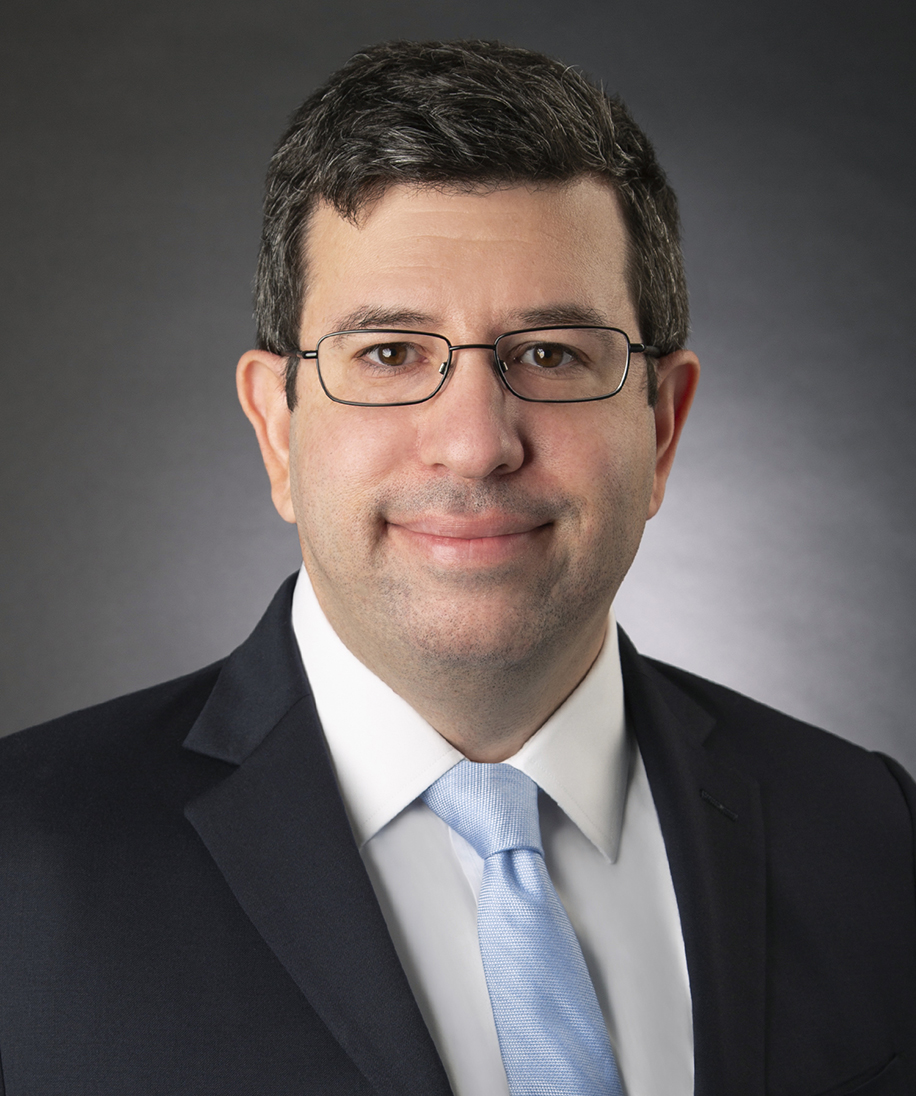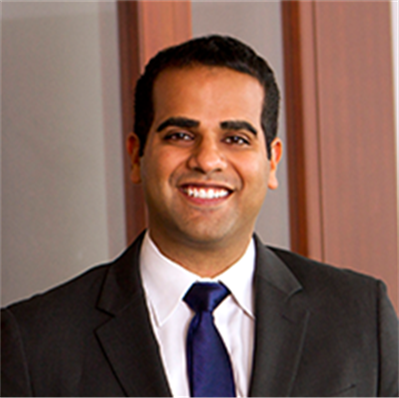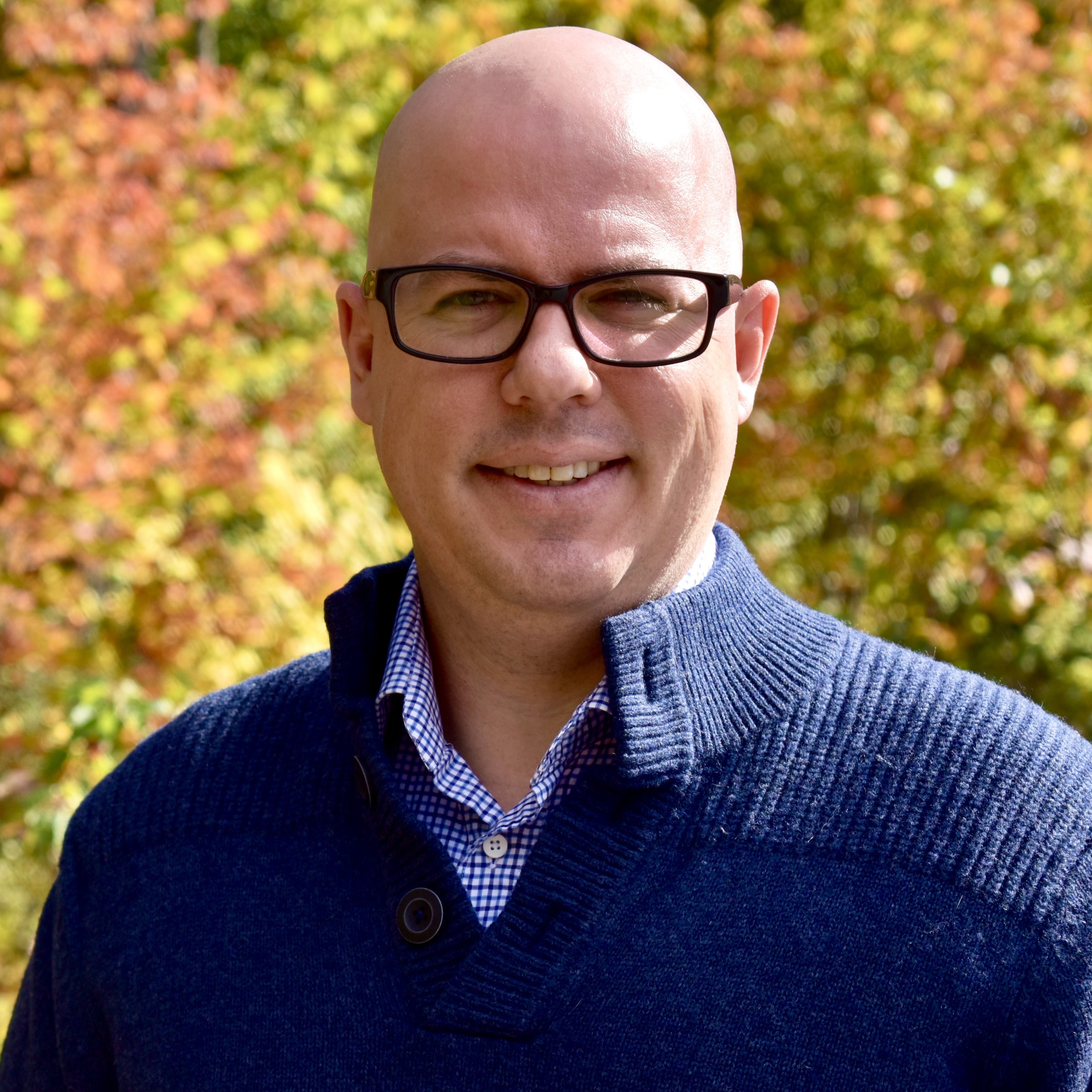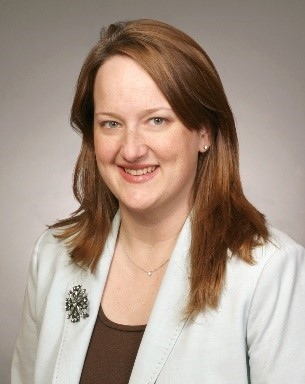Leadership
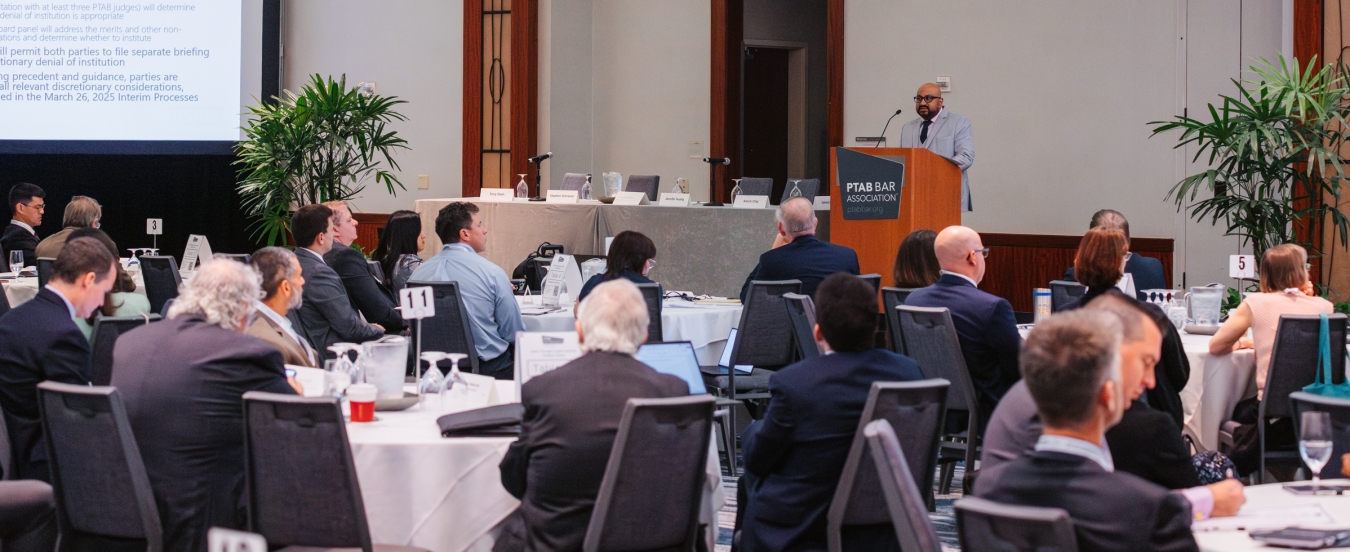
2025 PTAB Bar Assoc. Thought Leader Summit, Virginia Venue
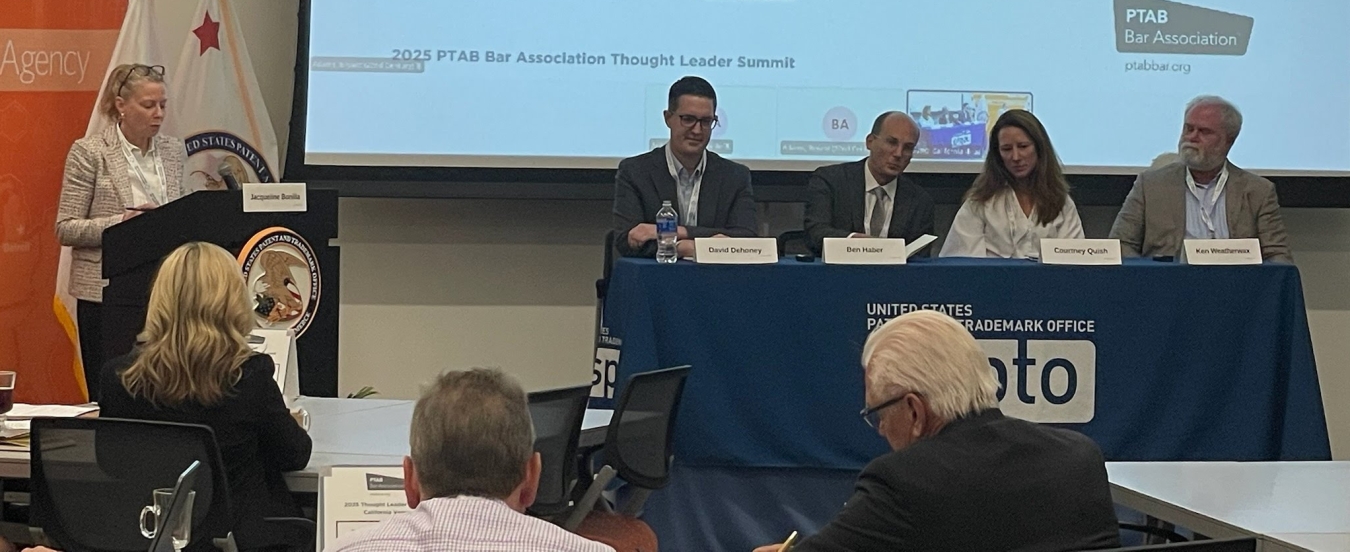
2025 PTAB Bar Assoc. Thought Leader Summit, California Venue
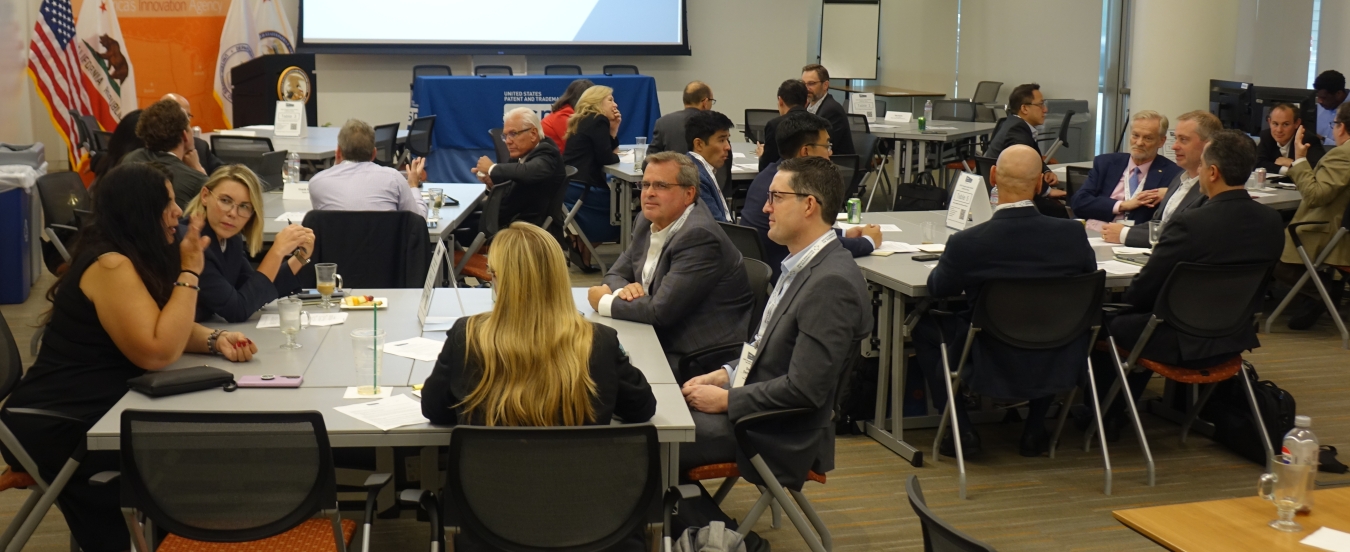
2025 PTAB Bar Assoc. Thought Leader Summit, California Venue

2025 PTAB Bar Assoc. Thought Leader Summit, Virginia Venue
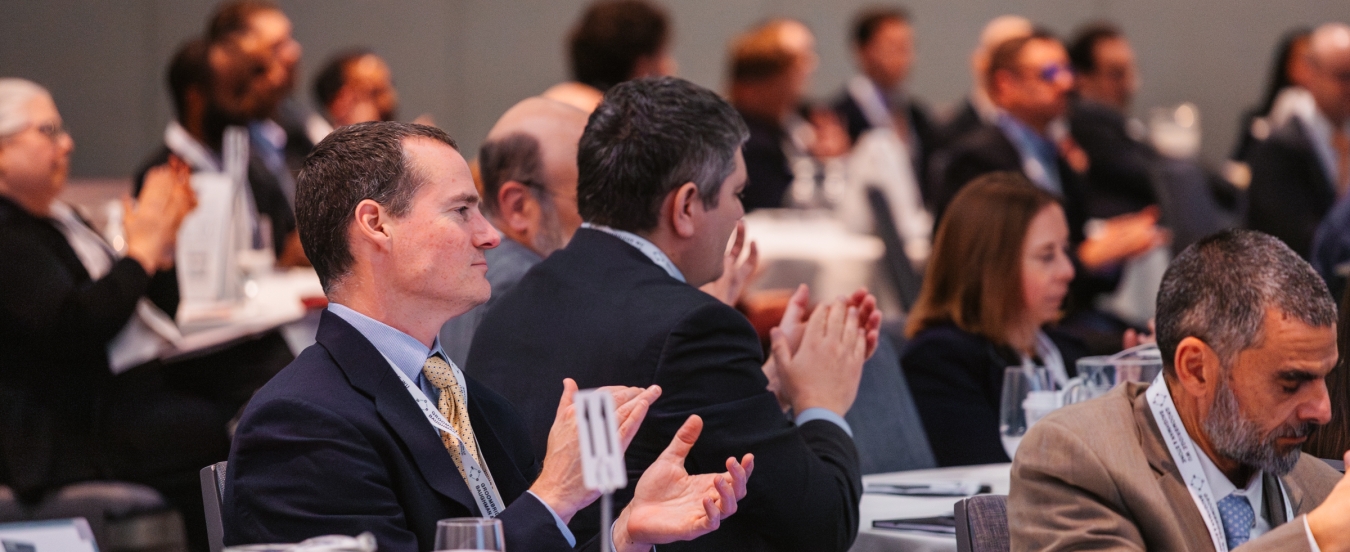
2025 PTAB Bar Assoc. Thought Leader Summit, Virginia Venue
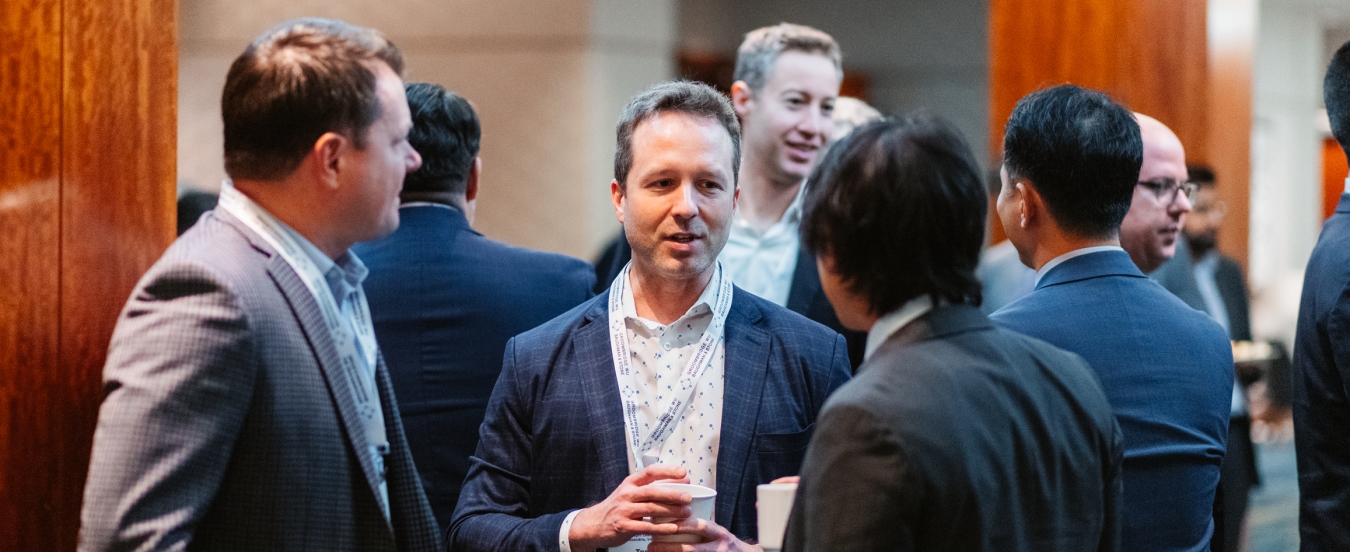
2025 PTAB Bar Assoc. Thought Leader Summit, Virginia Venue
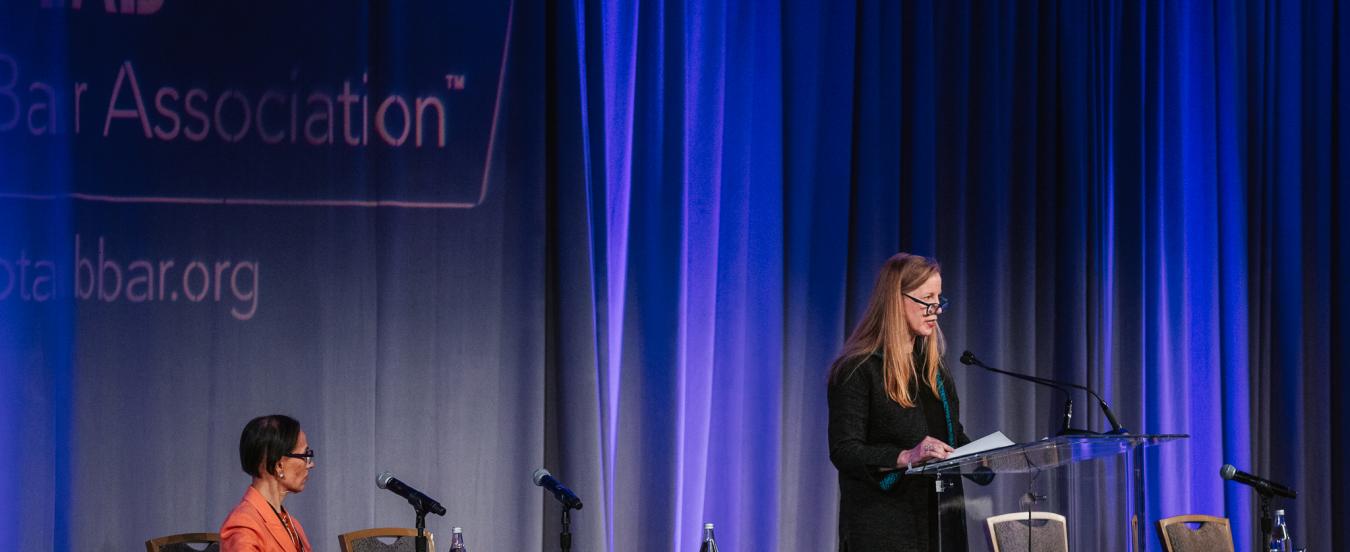
2025 PTAB Bar Association Annual Conference, Remarks by Acting Director Stewart
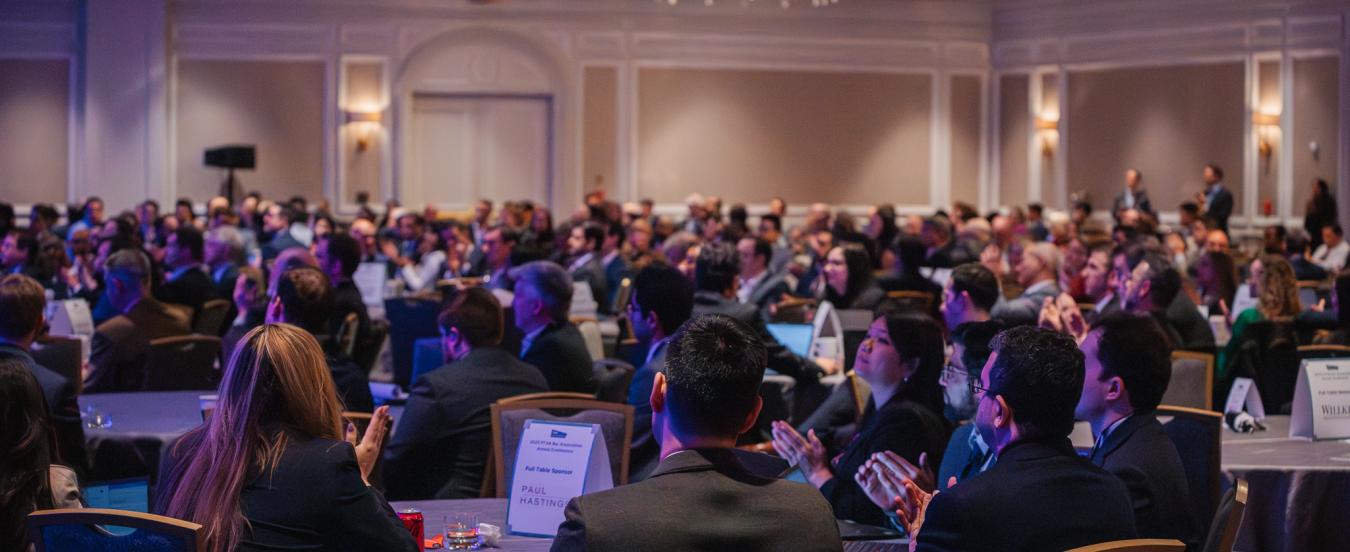
2025 PTAB Bar Association Annual Conference
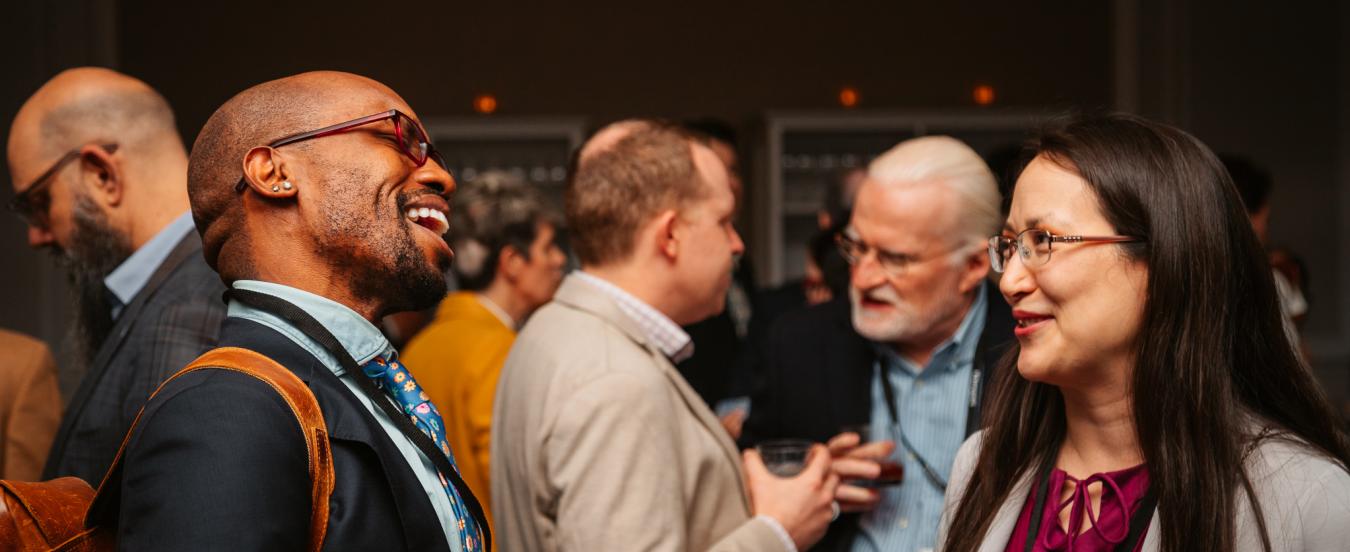
2025 PTAB Bar Association Annual Conference
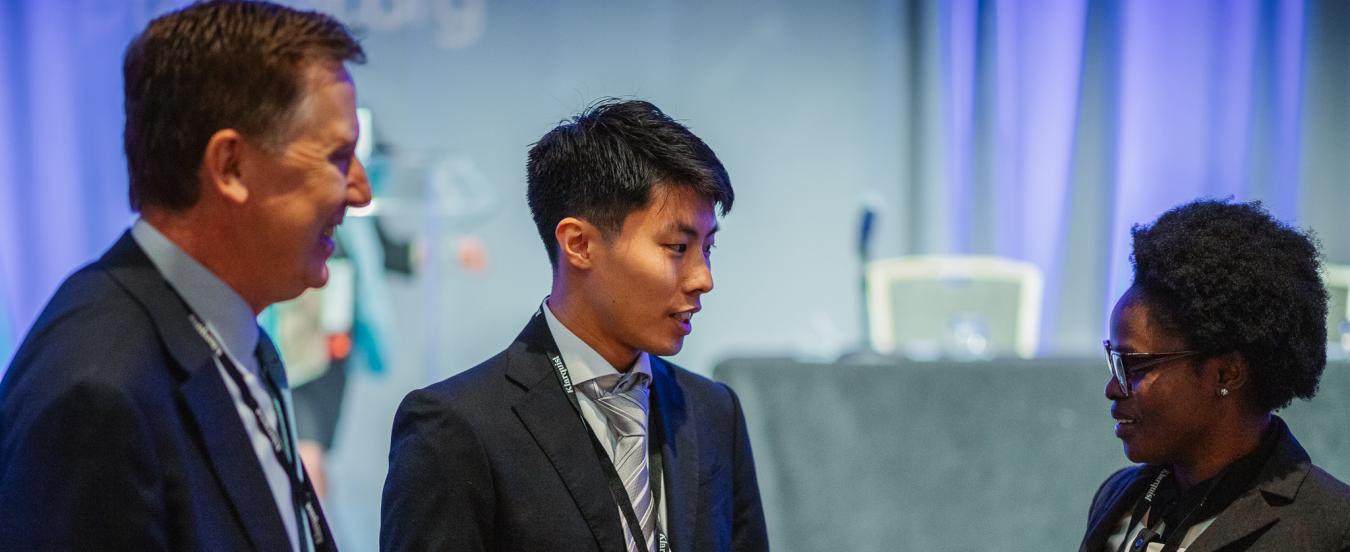
2025 PTAB Bar Association Annual Conference

2025 PTAB Bar Association Annual Conference
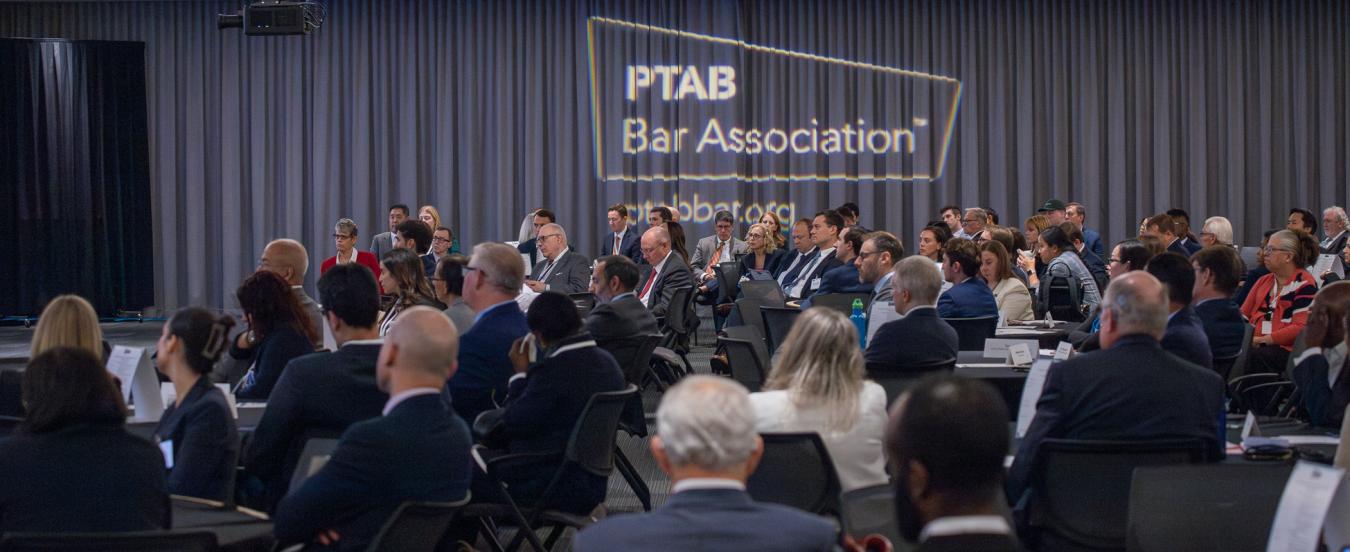
2024 PTAB Bar Association Thought Leader Summit, Virginia Venue
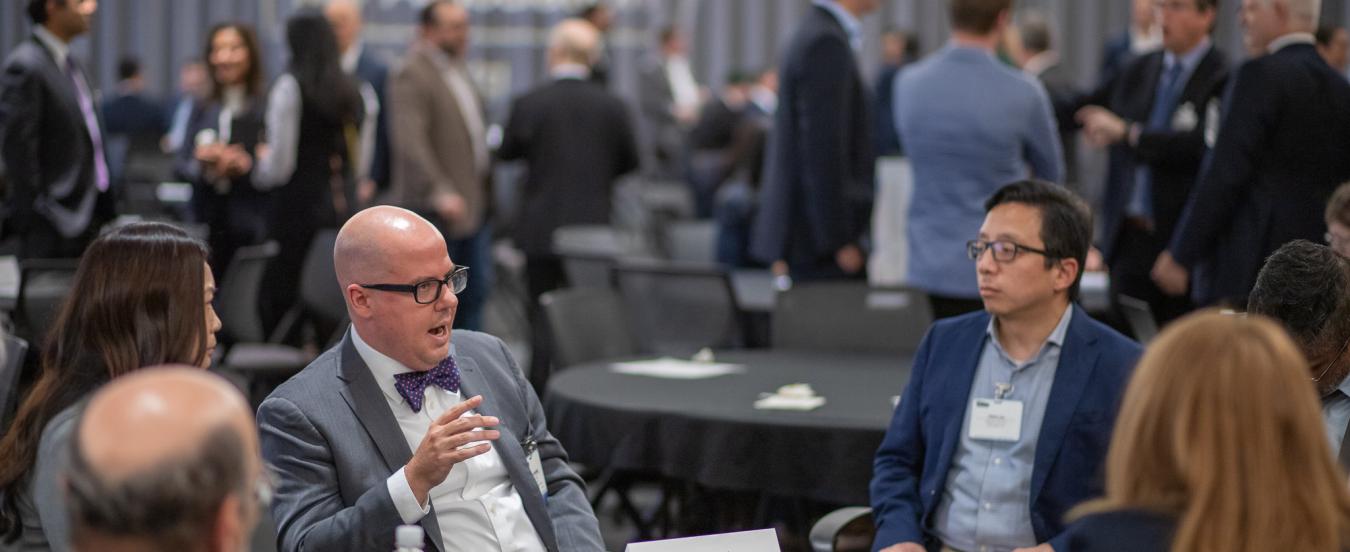
2024 PTAB Bar Association Thought Leader Summit, Expertise Expo, Virginia Venue

2024 PTAB Bar Association Thought Leader Summit, Roundtable Discussion, Virginia Venue
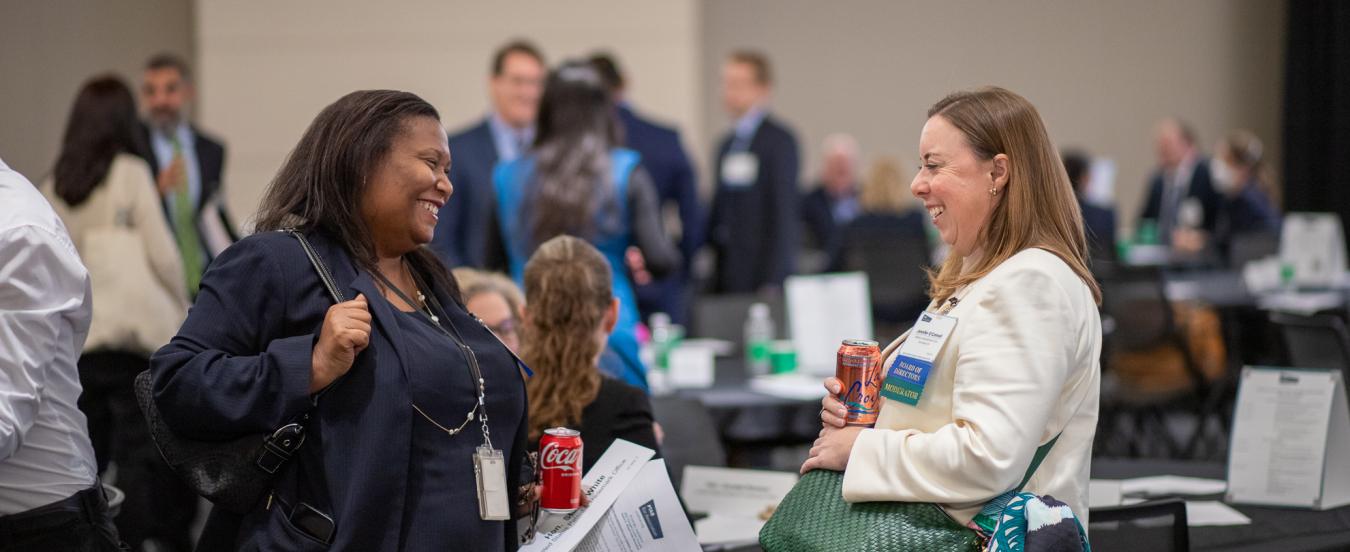
2024 PTAB Bar Association Thought Leader Summit, Virginia Venue
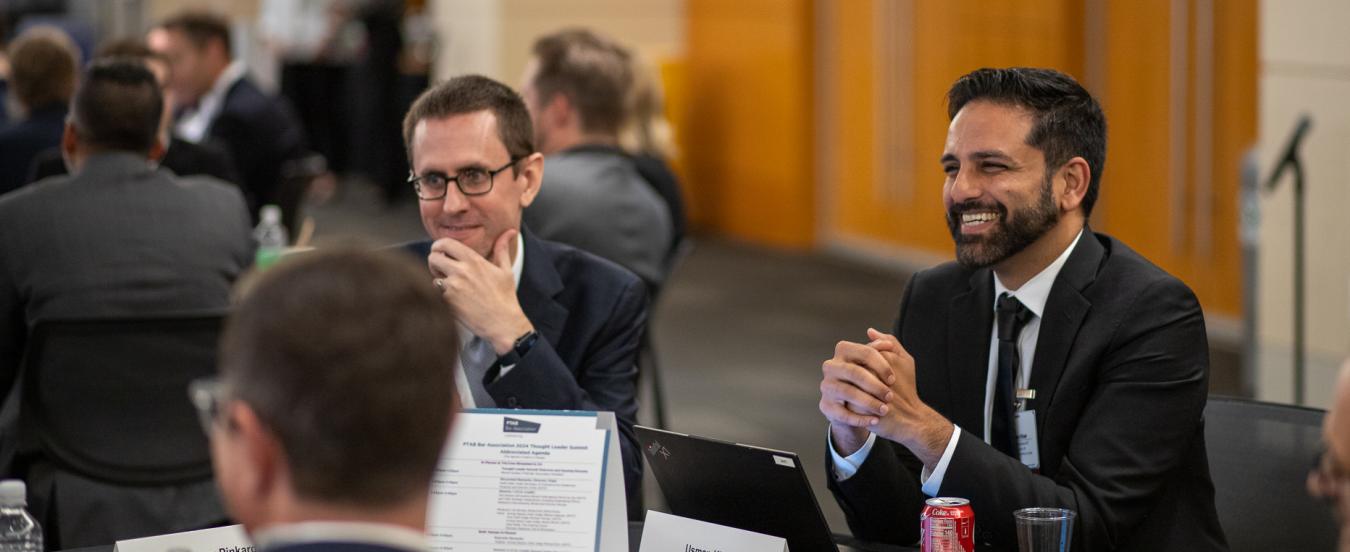
2024 PTAB Bar Association Thought Leader Summit, Roundtable Discussion, Virginia Venue
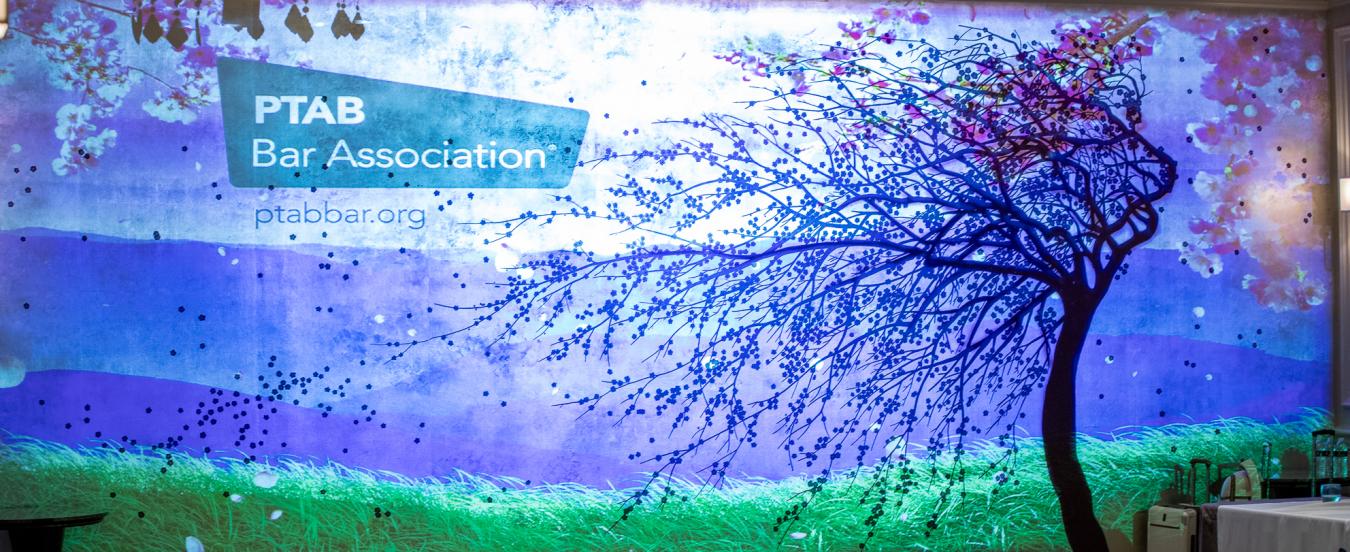
2024 PTAB Bar Assoc. Annual Conference, Washington, D.C.
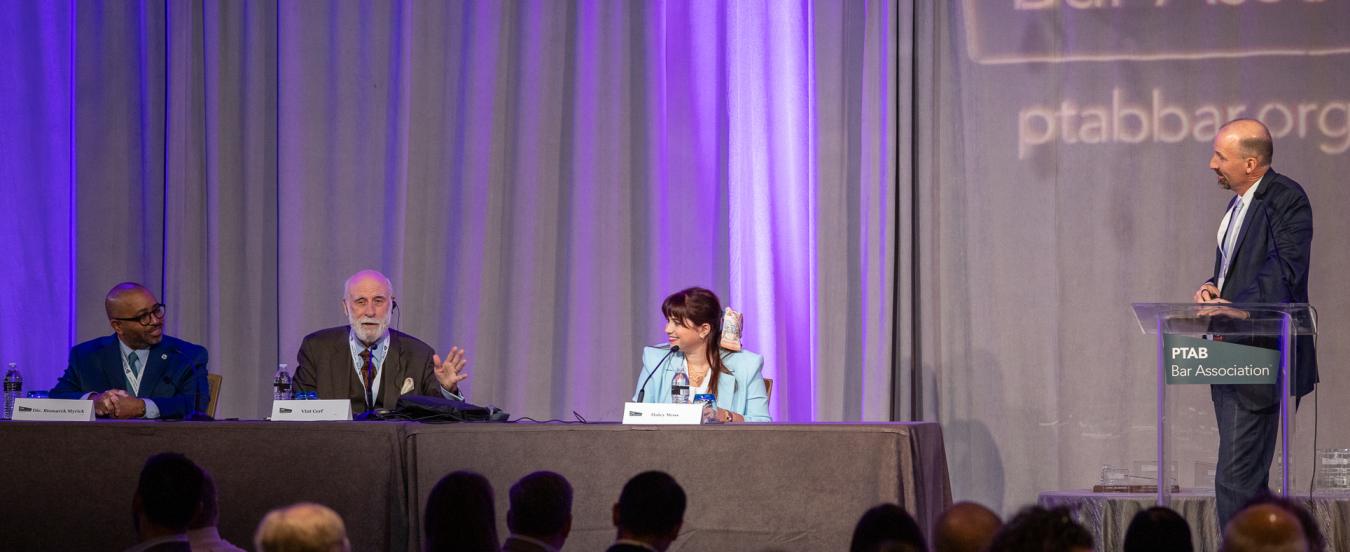
2024 PTAB Bar Association Annual Conference, DEI Panel
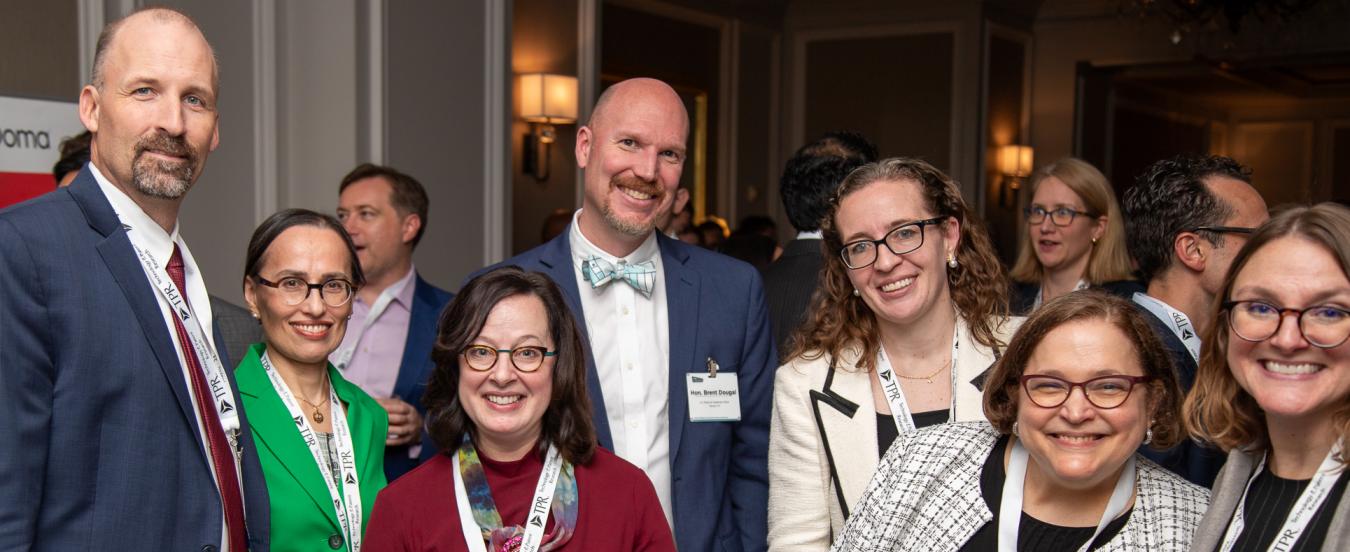
2024 PTAB Bar Association Annual Conference
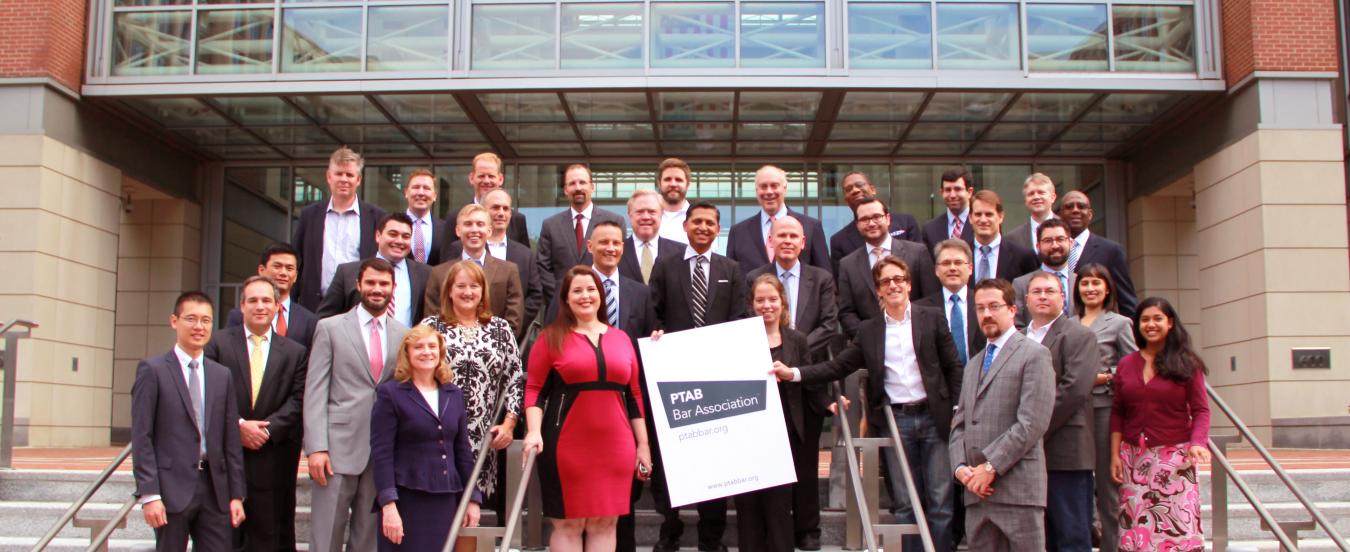
Focusing on the PTAB Since Our Formation...
‹
›
The PTAB is an important venue for patent challenges and appeals which shape the landscape for both patent litigation and prosecution. Good IP strategy must constantly consider the possibility of initiating or defending against PTAB challenges and the potential impact on prosecution, opinions, licensing and litigation. My past experience with other inter partes proceedings such as interferences and oppositions provides perspective on evolving PTAB practice as it is shaped by a growing body of Federal Circuit and Supreme Court precedent, agency decisions, rules and guidelines. It is an exciting and fun time, and the PTAB Bar Association offers an incredible community of practitioners, in-house counsel, and judges to foster a dynamic dialogue that informs us all and helps shape the future.
When it comes to the PTAB, remember your audience and the nature of PTAB practice. First, the PTAB judges are substantively knowledgeable and have little-to-no help in the form of law clerks. Assume that they will catch technical shortcomings, but understand that breaking down the analysis piece by piece so that it is readily understood makes for good advocacy. Second, as PTAB practitioners, we appear before the same judges and across from the same counsel repeatedly. With respect to the judges, credibility is key. With respect to counsel, be reasonable and play nicely. You may find yourself on the other side of the same ask with the same counsel in the future. As a member of the PTAB Bar Association board, I look forward to supporting and building collegiality amongst members of the PTAB Bar, and have a particular interest in building participation by women in PTAB proceedings.
Vice President Joshua Goldberg (Finnegan, Henderson, Farabow, Garrett & Dunner LLP)
PTAB practice has come a long way since the PTAB was created by the AIA. And so has the PTAB Bar Association. We have become the premier organization for dialogue between the bar community, the PTAB, and other stakeholders. I focus my practice almost exclusively on PTAB proceedings, and like many others, I enjoy the Association's programming and the opportunities it has provided me to meet, get to know, and work with others in the bar. I'm proud to have been involved with the Association since the beginning and look forward to helping shape its future.
One of the keys to the success of the PTAB Bar Association has been the manner in which it embraces a collaborative and collegial spirit. It is an environment where diverse perspectives converge in creating a platform to committed to excellence. By participating in the PTAB Bar Association, you gain unparalleled opportunities to engage with the latest developments, learn from luminaries in the field, and actively contribute to shaping the trajectory of PTAB proceedings.
Practice before the Patent Trial and Appeal Board is unique in many ways. For one, the scope of the work can be broad, covering everything from appeals of examiner rejections in patent applications that may cover important innovations; to derivation proceedings where disputes about invention are resolved; to inter partes review and post grant review proceedings where patentability issues are considered. For another, the work can involve many unique and cutting-edge aspects of the law, including not just patent law—of which there are bountiful issues—but also various other issues touching on, for example, important aspects of administrative and constitutional law. And for yet another, the stakeholders are varied and can have many different interests and perspectives. The PTAB Bar Association thus serves an important role in helping to address, and foster conversations about, the many PTAB-related issues that arise every year. It is an honor to be involved in the Association.
Non-Officer Board Members

The Patent Trial and Appeal Board (PTAB) plays a crucial role in ensuring the integrity and efficiency of patentability disputes by focusing on the rules, record, and legal framework. PTAB proceedings demand a deep understanding of procedural nuances and a clear, well-supported advocacy strategy. The PTAB Bar Association serves as an essential resource for practitioners, fostering a community where professionals can share insights, refine best practices, and engage in meaningful discussions with the Board and other stakeholders. Through initiatives like providing feedback on rulemaking and facilitating professional development, the Association strengthens the PTAB ecosystem, promoting fair and effective proceedings. Moreover, the collegiality among PTAB practitioners—who frequently appear before the same judges and opposing counsel—underscores the importance of credibility, professionalism, and constructive engagement. The PTAB Bar Association not only enhances the practice of PTAB litigation but also contributes to the broader advancement of innovation and the patent system.
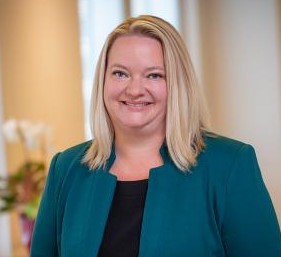
The PTAB Bar Association provides an excellent platform for collaboration among all stakeholders in the PTAB community. As a former PTAB Judge, I presided over hundreds of inter partes review and post grant review proceedings, and also decided ex parte appeals stemming from adverse decisions by Examiners. I witnessed firsthand both the technical expertise of the APJs and their dedication to providing fair and accurate decisions in all proceedings before the Board. As a practitioner, getting more involved in the Association’s committees and events has been a great way to make new connections and share ideas. In my view, the opportunity for continued communication and collaboration between practitioners, PTAB Judges, and other stakeholders is one of the best parts of the PTAB Bar Association. This information sharing and feedback provides valuable insights to practitioners and judges alike. I look forward to supporting the continued work of the PTAB Bar Association as a member of the Board.
The advent of AIA post grant proceedings—IPR and PGR—changed the IP litigation landscape dramatically. Almost instantly, these proceedings and PTAB practice generally became a part of every IP trial attorney’s playbook. The formation of the PTAB Bar Association was the natural next step because it works to create relationships between practitioners, encourage though leadership, and, as a result, foster a sense of comradery and decorum before the PTAB.
I have been fortunate to have practiced in multiple forums: district courts, ITC, and the PTAB. PTAB practice is particularly unique and challenging because it allows practitioners to engage on technical subject matter with a judicial audience that is equally steeped in the technology. I am also amazed by how the PTAB legal landscape has continuously evolved since the PTAB's inception. The PTAB Bar has created the perfect space for practitioner, like myself, to network and collaborate with seasoned PTAB practitioners who have their finger on the pulse of PTAB law. Also, in my view, the most unique aspect of the PTAB Bar is its active collaboration with the judiciary, which allows practitioners and members of the PTAB judiciary to routinely engage with and learn from each other, and together make the PTAB practice successful.
The PTAB Bar Association provides invaluable opportunities for patent owners, patent challengers, the bench, and the bar in PTAB practice to exchange information and share their perspectives. What makes the PTAB Bar Association special is the high level of collegiality, engagement, and cooperation among participants. As a result, the Association has grown in membership, activities, and significance in PTAB practice.
I run a solo practice in Maine that focuses on PTAB trials, ex parte reexaminations, and Federal Circuit appeals. I've found a home in the PTAB Bar Association, which welcomes every kind of practitioner: patent prosecutors and patent litigators; big-firm practitioners and small-firm practitioners; and practitioners who represent patent challengers, who represent patent owners, or who represent some of each. What unites us is a common passion for practice at the highest level before the PTAB. To anyone with an interest in PTAB practice and who hasn't joined the Association yet, the PTAB Bar Association can be your home, too!

As an active member of the PTAB Bar Association (Bar), since its inception, I understand the value that the Bar Association contributes to the PTAB community. The unique contribution of the Bar Association stems from our members and their collaboration with the USPTO PTAB. The Bar provides in-depth and relevant programming, case updates, and collaboration with the PTAB judges to improve both the ex-parte and post grant appeals process. The Bar provides significant value to the PTAB Bar community, offering essential training and input to the post-grant and appeals process. Importantly, it fosters inclusivity and diversity, making it a welcoming association that values all members' contributions and perspectives. I am honored and hopeful that as the founder and Director of Answers IP, with my 34 years of IP experience, including all aspects of Post Grant Proceedings, and as a USPTO practice Expert with live testimony experience, I can bring a unique and significant perspective as a member of the Board.
PTAB practice strips a patentability dispute to its core-to the rules, record, and roadmap. Proceedings require practitioners to have a nuanced understanding of the rules, a detailed knowledge of the record, and a compelling roadmap that navigates the Board through your arguments. The PTAB Bar Association has been an invaluable tool in mastering these issues, by providing a forum for practitioners, the industry, the PTAB, and other stakeholders to have constructive discussions on best practices, improving PTAB proceedings, and advancing innovation generally. I am proud to be an inaugural member of the Association and humbled to continue to build on what the Association has accomplished.
Ex parte appeals are an under-utilized tool in patent prosecution. The opportunity to have your application considered by three administrative patent judges, skilled in both the law and technology, should not be overlooked. Applicants can obtain claims they are entitled to with weak or improper rejections often being reversed. When an Examiner is affirmed, the PTAB Decisions may provide valuable feedback and guidance regarding the cited art and pending claims that aids in further prosecution. The PTAB Bar Association provides a collaborative environment for patent practitioners to discuss the nuances of ex parte appeals and practice before the PTAB. In addition, my membership in the PTAB Bar Association has been essential in keeping current with the ongoing changes occurring in post-grant practice.
The PTAB Bar Association offers a vital platform for PTAB practitioners to exchange knowledge and best practices related to PTAB proceedings, thereby enhancing the expertise of its members. It promotes networking and collaboration among attorneys, judges, and other stakeholders, creating a supportive community that bolsters the effective functioning of the PTAB. As a member of the PTAB Bar Association Board, I am honored to be part of an organization that plays such a pivotal role in fostering a collegial and collaborative environment among practitioners.
The PTAB Bar Association provides members with meaningful educational opportunities and resources, serving as a forum for discussing the unique issues and challenges facing us as practitioners. Through our collaboration with the PTO, we help our members stay informed of and connected to developments in our corner of the legal community. As an IP attorney with diverse experience representing life sciences and medical device clients before the Board both as petitioners and patent owners, I am excited and honored to contribute to the organization as a Director.
Kara Specht (Finnegan, Henderson, Farabow, Garrett & Dunner LLP)
Through my involvement with the PTAB Bar Association I have had the honor of serving the practitioner community as well as the Office by participating in insightful programming, promoting the LEAP program to educate and train the next generation of PTAB practitioners, and providing feedback to the Office by formulating comments on rules packages. I am proud to be a member of this Association and am thankful for the opportunities it has afforded me to form relationships with my bar colleagues, to continue to learn, and to positively impact the future of the PTAB community.

As the founding director of the PTAB Bar Association representing WilmerHale, and a current co-chair of the Post Grant Proceedings Group at WilmerHale, post grant work is a cornerstone of my practice. Since the inception of the America Invents Act, post grant proceedings have become a key part of IP/IP Litigation strategy-the interplay between these proceedings and concurrent litigation in different venues has created an engaging, complex area of law. Since taking the Patent Bar Exam in 1995 while working on the first launch of the Space Shuttle to our International Space Station Mir, I marvel at how our Patent Office practice has become more vital for our clients while our presence in space exploration diminished for a duration. The USPTO practice provided a much needed platform as I transitioned to becoming a patent attorney from my engineering days. I sincerely enjoy being part of the PTAB Bar Association and providing a platform for discourse, collaboration and engagement within this community from the inception of our Association. Our Association has recently worked on providing Probono opportunities for our practitioners in collaboration with our PTAB Judges which speaks further to our sense and sensibilities as an Association and personally gratifying.
Teresa Stanek Rea (Rea Consulting LLC)
The PTAB and Outreach
The America Invents Act may have taken at least seven years to come to fruition but it was worth the wait. The success of the AIA is best demonstrated by the popularity of the new trial proceedings before the PTAB. These new proceedings are now a mainstay of every litigators armamentarium. Their significance and value are appreciated by most practitioners in the United States but it is worthwhile to note that our international colleagues are immersed in the nuances of these proceedings as well. Many patent disputes can now be handled more efficiently, quickly and cost-effectively. We have the PTO to thank for getting everything up and running so quickly and for reaching out to our community as things progressed. The PTO remains flexible and continues to revise the rules as the need arises. That outreach is important and will be enhanced by the creation of our new bar association.
The PTAB is an indispensable part of the U.S. patent system. The PTAB Bar Association was formed with the goals of being the collaborative, congenial, inclusive, highly professional and community-centric Association dedicated to being a voice for all PTAB stakeholders. The Association's leadership has always kept these goals at the heart of all their decisions. I'm proud to practice before the PTAB and to be associated with such a great group of world class patent practitioners, leaders and, most importantly, people.
Practice before the PTAB has provided many practitioners, including myself, an incredible outlet to bring value to our clients, and to have fun doing so. In fact, one of the best attributes of PTAB practice is the opportunity for patent prosecutors and litigators to work more closely together. While these two groups live homogenously within the walls of our firm, this practice allows us to come together across the industry. As for the PTAB Bar Association, I am honored to work shoulder-to-shoulder with colleagues around the nation and the globe to bring this off the ground, and I am excited by the prospects of what we can accomplish as we continue to work together to create a useful resource for industry and the PTAB!

As important as it is to know your audience at the Board (three technically-savvy judges with tough questions), it can also be critically important to know your stage. The PTAB's hearing rooms, whether in Alexandria or a satellite location, vary widely, and this can lead to unpleasant surprises for the unwary. Perhaps the most obvious challenge is one of space: in a multi-petitioner dispute, for example, Alexandria courtrooms other than A are unlikely to have enough room for all of the attorneys, let alone a representative from each party. And even within the available space, revamped technology has shifted some prior layouts and logistics practitioners have come to count on (in A, for example, there is no longer a shelf waiting under the podium for your papers and binders, and a new projector interface makes computer placement tricky if you don't have a long extension cable at the ready). So for your next trip to the PTAB, bear in mind that knowing your room, as well as your case, can help smooth out what might otherwise be an awkward visit.
This may sound basic, but do not play games with your opponent and be courteous and reasonable (e.g., with requests for extension). As one example, I was involved in an IPR where the other side submitted an English-language declaration, but insisted that the deposition be conducted in a foreign language right before the deposition started. This was the first time the other side made us aware of this issue and asked us to use an interpreter they had on-site. When we indicated that we would need our own interpreter as provided for by the rules and needed time to secure one, they insisted that we use their interpreter. We ended up having a call with the PTAB during which the judges ordered that the deposition be rescheduled for another day with proper interpreters and made the other side pay for certain costs for having to reschedule the deposition.
Erika Arner (Finnegan, Henderson, Farabow, Garrett & Dunner LLP)
PTAB trial practice is a bit like the Wild West. When Congress gave us this brand new law, we all became pioneers trying to figure out how it should work. Nearly every proceeding involves something that is not specifically addressed in the statute or rules, providing opportunities to be creative and collaborate with the Board and sometimes even opposing counsel to shape the practice. In one case, we proposed a new type of motion to the Board, and the panel promptly asked us to file a short memo explaining how this new procedure should work under the statutory provisions. More recently, the Federal Circuit and Supreme Court have taken an interest in the nuances of PTAB trial practice. In one particularly fun argument, Judges Newman and Prost spent nearly 20 minutes questioning us about how motions to amend really work, and now the en banc Court will be taking up that issue. So much more to explore!

Law School Doesn't Teach How to Form A Bar Association, But with the Help and Collaboration of Over 45 Law Firms, We Figured It Out.
After litigating patent cases in district court for more than 25 years, a profound shift in my practice started in 2014 as I began to litigate proceedings at the PTAB. After a number of trial hearings, I noticed a few ways the process might be improved and wondered if others in the legal community had similar concerns and experiences. To my surprise, I couldn't find a directory of PTAB practitioners or any bar association dedicated to addressing issues related solely to the PTAB. Shouldn't there be one?
On February 19th, 2016, a kick-off conference call occurred with a handful of PTAB practitioners to explore whether they felt similarly. They did. Our first action was the creation of an organizational charter to provide a unified voice for all stakeholders to participate in the formation of a PTAB bar association. More than 45 law firms (and several companies) quickly signed on, and in less than seven months we launched the PTAB Bar Association.
I have been humbled by the level of commitment and effort by so many of the legal community to fulfill our mission of launching this association and making this bar association a success.




